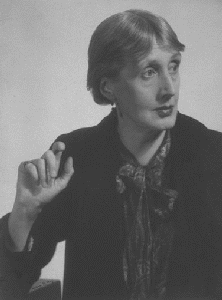- Response papers You'll write three response papers this term of approximately 500 words each. These papers, and the formal papers, will be thematically as well as textually-oriented. These are formal papers in the sense that spelling, grammar, and thinking count--all papers must be neat, typed, revised, finished, and proofread. At the same time, these are papers in which to try out ideas, to experiment and challenge yourself intellectually. I will read these papers, comment on them, and grade them pass/no pass. A passing paper requires a strong thesis, cogent evidence, and grammatical accuracy (natch). No-pass response papers may be rewritten and handed back to me within a week. Three passing papers will count as a 4.0, two as a 2.0, one paper as a 1.0.
- Article summary and response. You are required to summarize and comment on three critical articles (also called "essays"; please note that ALL critical articles/essays will be available for you to read). The required summary will result from collaboration among those treating each article (at least two students).The first sentence of the summary will be the thesis of the article. The summary should be at least 5 or 6 sentences long (about a paragraph); longer is acceptable. Following the summary, the group will respond to the article in a second paragraph: how did reading the article enrich understanding of the text? How did it shift the members' ideas about literary criticism or literature? The third part will be the group's further questions about the text, prompted by the essay. Each group will choose an amanuensis -- and official "scribe" -- who will post the summary on Canvas for the entire class to read. I'll grade these article summaries and responses. See the schedule for article summary and response due dates.
- Graded formal papers. Two essays of approximately 1500 words each. Each essay will treat a course theme and may use observations originally explored in response (and/or article summary) papers. Paper 1, which will treat The Princess of Cleves and/or Tale of Two Cities, is due Wednesday, January 27. Paper 2, which can treat any of our other texts, is due Monday, March 8. Note paper due dates: papers must be turned in on the date specified. Plan ahead.
- Final exam. Cumulative, essay, take-home exam due no later than Friday, March 18, at 12:15 pm
Opportunities
- Two filmed versions of our texts: Orlando, scheduled for Monday, February 1, at 6:00 pm in Global Scholars Hall, and Copenhagen, on Monday, February 22, at 6:00 pm in Global Scholars Hall.
Grading
The response papers constitute 15% of your grade; the two formal papers, 25% each; the article summaries, 15%; participation, 5%, and the final exam will constitute 15% of your grade. Please note the University's "grade point value" system effective 9/90, as I will be using this system (unless otherwise noted):
|
A+ = 4.3 |
B+ = 3.3 |
C+ = 2.3 |
D+ = 1.3 |
|
A = 4.0 |
B = 3.0 |
C = 2.0 |
D = 1.0 |
|
A- = 3.7 |
B- = 2.7 |
C- = 1.7 |
D- = 0.7 |
Note that a grade of "C" is, according to academic regulations, "satisfactory," while a "B" is "good." That means that a "B" is better than average, better than satisfactory, better than adequate. The average grade, then, is a "C"; a grade of "B" requires effort and accomplishment.


